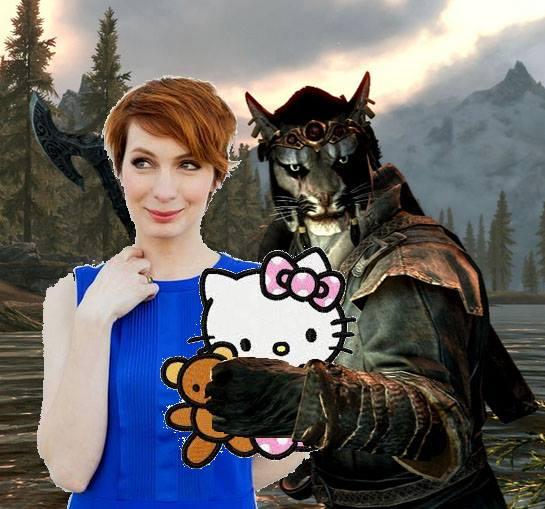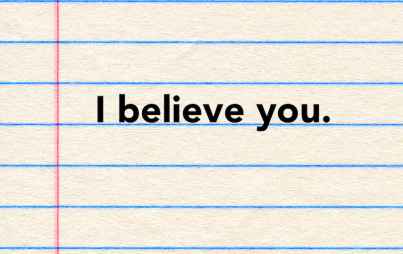
Credit: Facebook
Let Felicia Day tell you a thing about the wholly conditional tolerance of women within the old guard of geek culture that #GamerGate is fighting so hard to keep alive.
Far from an outsider looking in on nerd culture, if anything, Felicia may have flown too close to the sun. She created The Guild. She was on Buffy and Eureka. She has a committed message board on subreddit, r/FeliciaDay, where she fielded a Q&A session posing as her dog. She was “adorable,” “classy.” A down to Mars girl, who had strung up so many of the stars in this wondrous multimedia multiverse, now being torn apart in real time by hashtags and death threats.
#GamerGate’s rhetoric has taken refuge in the perceived obtuseness of their targets. Zoe Quinn and Anita Sarkeesian were not “one of them”—they were invaders, professional irritants getting under the skin of the industry. Felica Day is not an outsider artist—she is the face on the TV party DVD, the action figure on the shelf of the guy playing the sexist, racist game we’re all saying we need fewer of.
She is 1d20 times the “geek” as all these men who build their identities around stuff they buy.
But nerd cred is not recession proof as such, and when she finally spoke out about her fears to even discuss GamerGate on her Tumblr—with an almost unnerving gentleness—she was afforded only a few minutes before she was doxxed by a GamerGate supporter.
She penned:
“—personally I am terrified to be doxxed for even typing the words “Gamer Gate.”

"I have allowed a handful of anonymous people censor me. They have forced me, out of fear, into seeing myself a potential victim. And that makes me loathe not THEM, but MYSELF."

"Don’t let other people drive you away from gaming.
Games are beautiful, they are creative, they are worlds to immerse yourself in. They are art. And they are worth fighting for, even if the atmosphere is ugly right now."

This is not about the preservation of a cultural identity, but a debriding of the human element. Felicia Day crossed the street and hung her head. She felt shame. She felt afraid. She spoke out about that fear; she looked at this swarming hive of hurt and said "I'm afraid but this is worth having a discussion about"—not as a critic or an outsider aghast at all the carnage, but as a voice and creator veritably entrenched in the community.
If GamerGate can't have the video games, than nobody can. They will harass sponsors and force the very people who make the content that comprise their consumerist identity into hiding if it allows them ownership of the medium and narrative—however fleeting that possession.
"Classy" and "adorable" is only a Tumblr post away from being "an attention whore." This is not about ethics in games reporting—this is about reporting on attempts to make games ethical. And everyone, up to and including a woman who made six seasons of a web series about MMORPGs is acceptable collateral in the struggle to retake the narrative.
There is no formal membership requirement for GamerGate, by design: with few exceptions, the movement makes full use of the anonymity that its targets—visible women of marginalized identities and backgrounds—are denied. We have to show our faces. To illuminate our struggles—to tell other women that they are not alone, that we are fighting for them and will make a scene they can be a part of someday.
GamerGate has no such prerogative—they are Schroedinger's NPC: both for and against harassment of violence, both white/male and nonwhite/nonmale, everywhere and nowhere. A single cell commits the doxxing for the benefit of the group's greater designs—the rest of the body falls on us with its whole weight, screaming "it wasn't us you have no proof we are against harassment!"
But the trail of tried patience is definite and deliberate.

The question is, where does it end—and how far along does it have to go before everyone not a white supremacist MRA realizes this ride totally fucking sucks?





